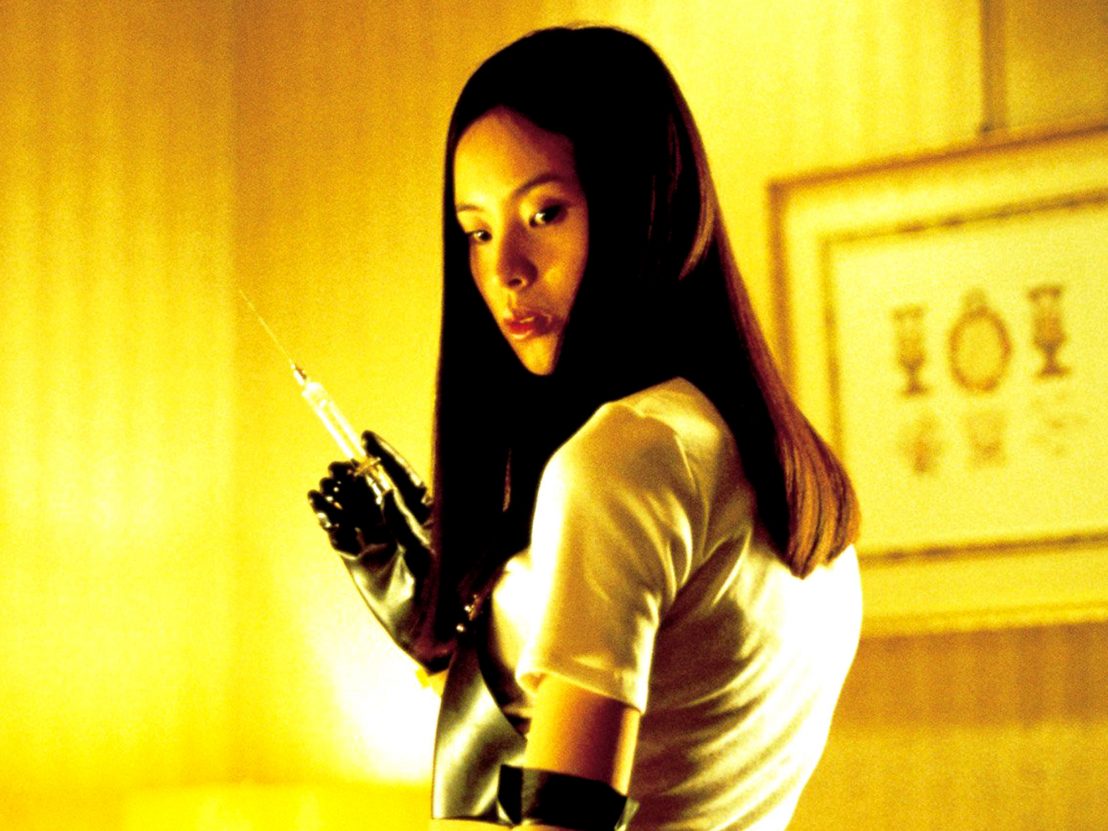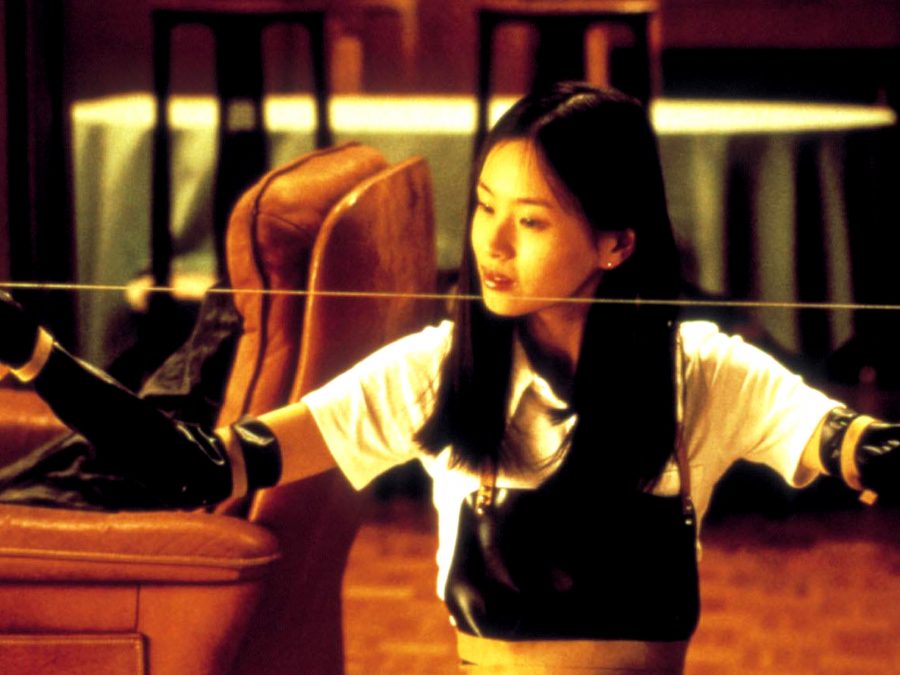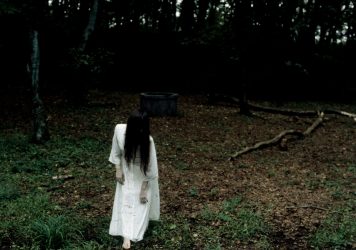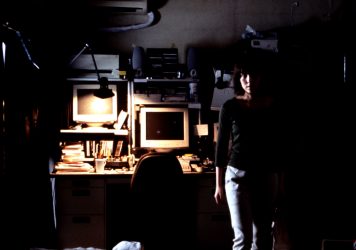
At the time of writing, the world is still struggling to find its footing following the disruptive shake caused by the #MeToo movement. Although efforts to tackle disparity both within and outside of the entertainment industry continue, the cultural shift remains in its seedling stages due to the complexity and division over how to respond to gender-based violence on a global level.
As the work of male auteurs finds itself under a brighter spotlight than before, it seems entirely fitting that Takashi Miike’s J-horror hit Audition is return to cinemas with a new 2K restoration. Equally as complex and divisive in its display of gender-based violence (but not in the way you’d expect), 20 years on the film is ripe for reappraisal with fresh, albeit tainted, eyes.
Since unleashing his filmmaking debut onto unsuspecting viewers back in 1991, Miike has proven himself to be a true cinematic maverick with a prolific work ethic and daring sensibility. Not all of his work promotes an even craft and tone, yet one overriding theme that never seems to falter is Miike’s obsessive compulsion towards theatrical gore often resulting from hypersexual violence.
Perhaps the most notorious example of this is 2001’s yakuza thriller Ichi the Killer, the film that cemented his reputation as the agent of extreme bloodshed and brutality. That same year, Miike descended further into stomach-churning perversity with the low-budget, high-comedy Visitor Q, fitting the never-safe topics of prostitution, drug addiction, incest, necrophilia and all forms of unconventional fetish into a 90-minute runtime.
It’s no surprise that such films have come under scrutiny for their unabashed exploration of depravity. Throughout his career, Miike has been hailed both a feminist and a misogynist, with some deeming his approach to sexualised violence deeply exploitative. No work signifies the complexity and divisiveness of his oeuvre more than Audition, which not only launched Miike on an international stage but sparked the rise of J-horror.
Although Audition is billed as a horror, the film is initially deceptive in this regard, following the story of Aoyama (Ryo Ishibashi), a middle-aged producer and widower who is convinced by his son Shigehiko (Tetsu Sawaki) to find love once more. Together with colleague Yoshikawa (Jun Kunimura), Aoyama embarks on a series of auditions for a made-up acting role, the scenes of which provide an unexpected jolt of comic relief, evoking a sharp, satirical commentary against the objectification of women.
In the context of the Harvey Weinstein scandal and subsequent #MeToo movement, the screen test montage appears to echo the pernicious show business cliché of the casting couch. “Can you keep this one for another job?” Yoshikawa remarks, after discovering woman #21 specialises in porn. Eventually Aoyama sets his sights on Asami (Eihi Shiina), a near-perfect archetype of what his docile wife should be: timid, soft-spoken, attractive, modest, talented, sweet; her alleged purity expressed through an all-white attire.
It’s at this point, just when the pair’s relationship begins to bloom, that Miike pulls the rug out from under us. The latter half of the film descends into scenes which, with generous help from an impeccable sound design, ensure you’ll never look at piano wire in the same way again.

As a victim of male abuse from an early age, Asami is driven by an obsession to inflict pain upon her new lover, using manga-style torture methods as punishment for his male-centric arrogance. Due to the repeated flashbacks of Asami’s early abuse and the resulting cartoonish fulfilment of the vengeful female trope, it’s perhaps unsurprising that Audition faced claims of being an exploitative projection of male anxiety.
On closer inspection, however, Miike asks us to consider the cultural context in which the film is set. Based on a novel by Ryu Murakami, who often uses social commentary to skewer concerns facing modern Japan, Audition offers an ingenious twist on national femininity by subverting the passive female horror narrative.
Back in the early 2000s, the power dynamics of men and women within Japanese society were shifting, much to the dismay of Aoyama and Yoshikawa, who connect this shift to the demise of the entire culture. Concurrently, the objectification of the female form was, and still is, widespread in pop culture, highlighted in the film with glaring mockery by the numerous parallels drawn between women and dogs, not to mention the aforementioned audition scenes.
By Asami lashing out against these increasingly tiresome expectations, proving to be the most extravagant paradox to the “obedient” wife Aoyama was hoping for, the subtext appears to mock the anti-feminist push-and-pull still present in today’s society. Within Miike’s twisted environment and the realms of hardcore horror, our antagonist is an exaggerated feminist icon in leather-clad disguise.
Published 12 Feb 2019

By Anton Bitel
Destruction Babies is raucous rebel filmmaking at its brutal best.

Don’t miss the opportunity to relive this nightmarish J-Horror courtesy of a new restoration.

By Alex Denney
Kiyoshi Kurosawa’s eerily prescient 2001 film journeys to the heart of technological darkness.